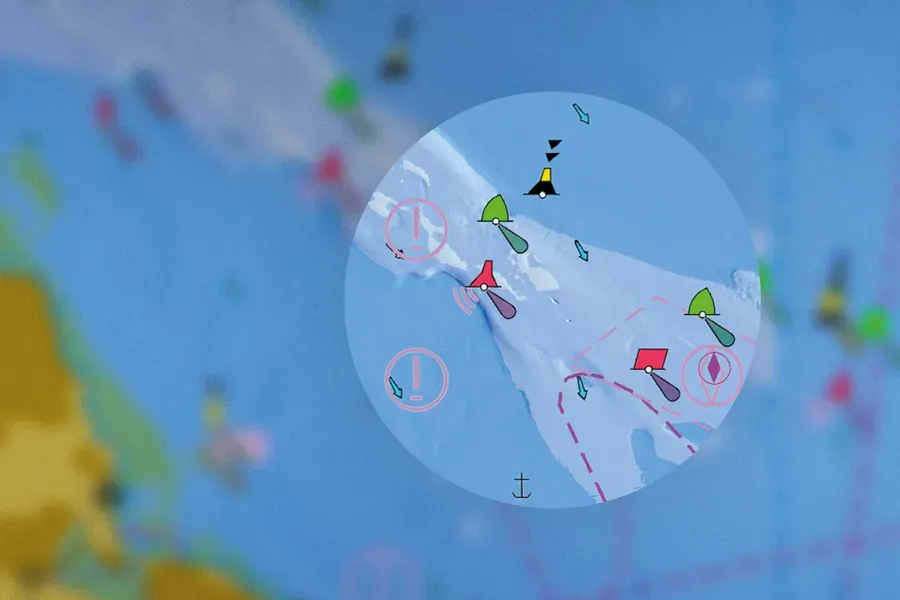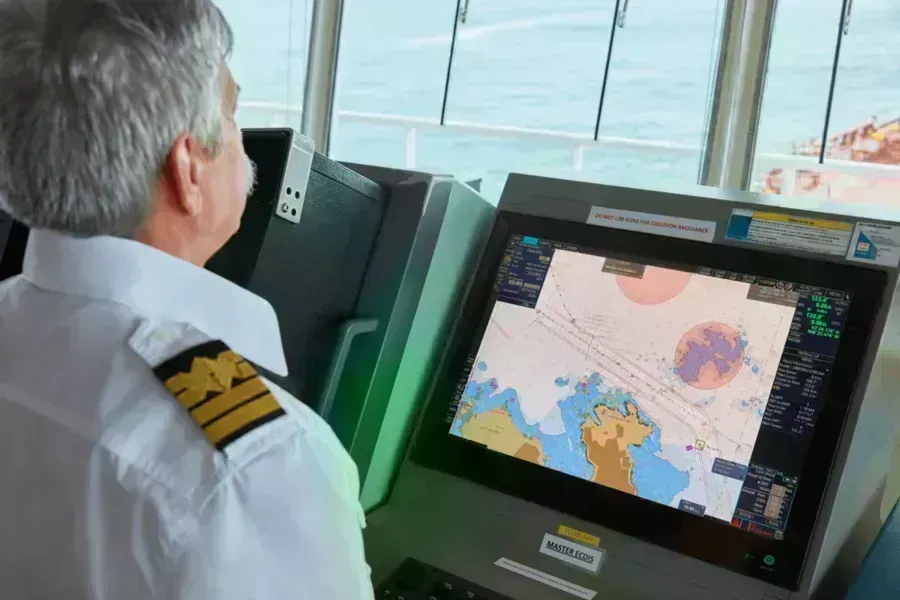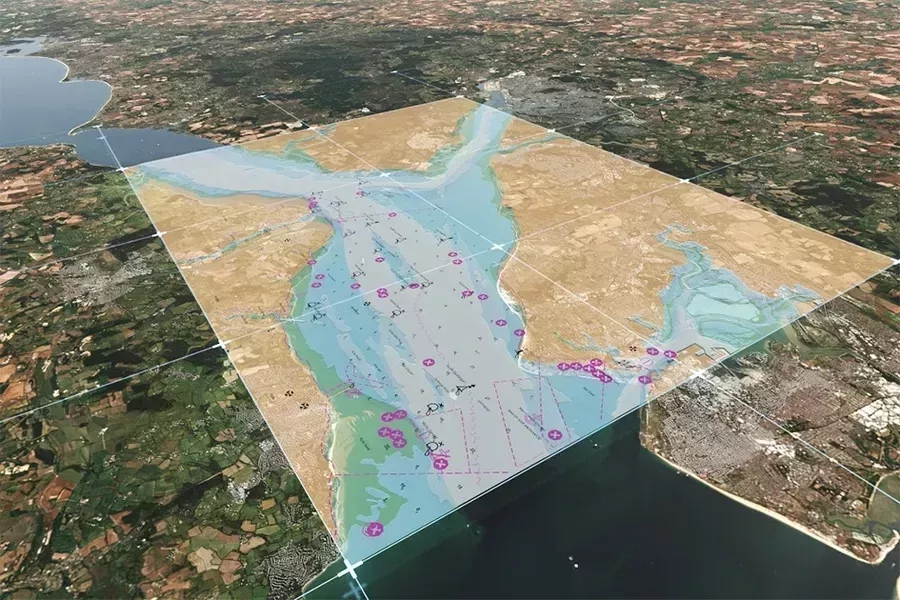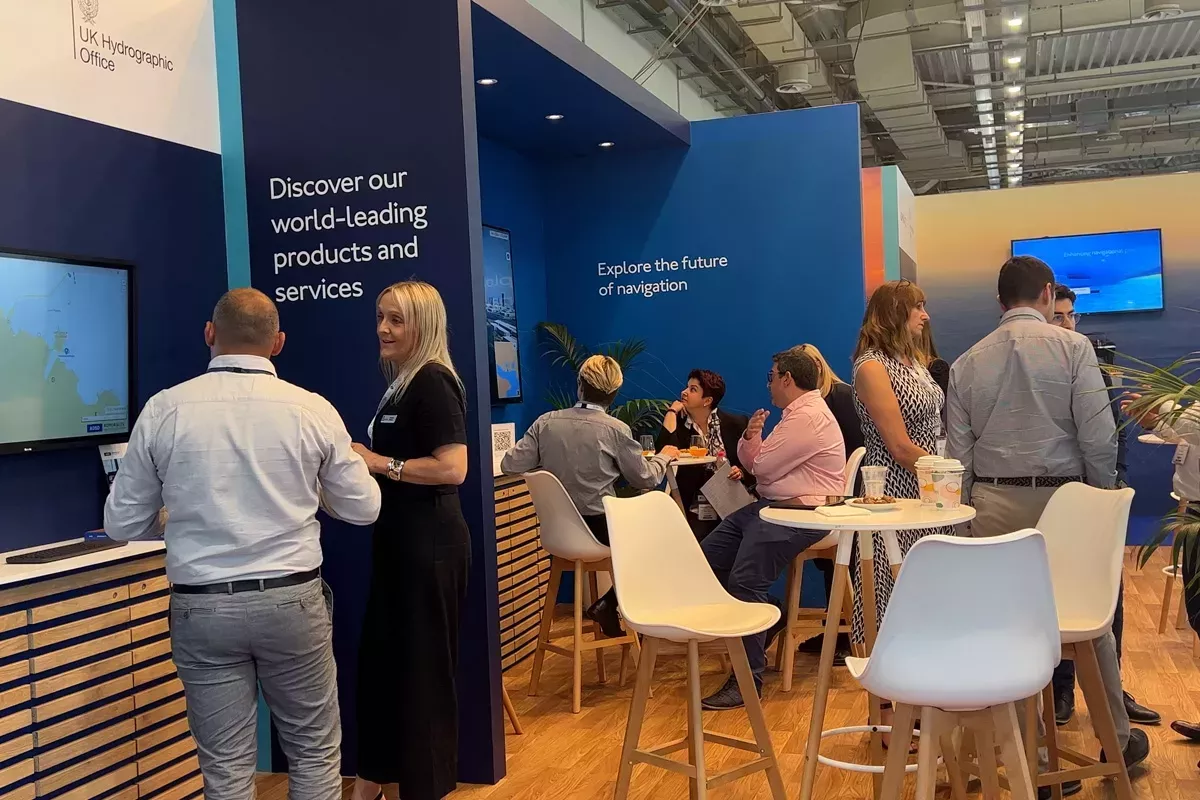
Posidonia 2024 saw a record-breaking number of over 40,000 participants travel across the globe to attend the biennial event in Athens, Greece earlier this month. Since 1969, this event has been one of the most significant gatherings in the shipping calendar, offering a platform for discussions on some of the most critical issues that face our industry, as well as a spotlight on the all-important Greek shipping market.
The UKHO is a regular presence at Posidonia, showcasing the latest developments in our ADMIRALTY portfolio and taking advantage of the opportunity to meet with our customers and partners across the industry. Here are just a few of the key takeaways from this year’s event.
Regulation in a changing maritime industry
One of the pivotal themes at Posidonia 2024 was the impact of recent and upcoming regulations in the maritime sector. The consensus among industry leaders was clear: regulations are essential, but their complexity and enforcement present significant challenges.
There were discussions around how the increasing complexity of these regulations could impact their effectiveness. For instance, from January 2025, ships using conventional fuels will incur additional costs due to the new FuelEU regulations. However, the complicated nature of these rules could incentivise operators to find loopholes – undermining their intended environmental benefits.
At the TradeWinds Shipowners Forum, the discussions underscored the need for regulations that are enforceable. The International Maritime Organization (IMO) highlighted ongoing efforts to tackle issues such as the so-called ‘dark fleet’, which operates outside of regulatory oversight – posing risks to safety and the environment.
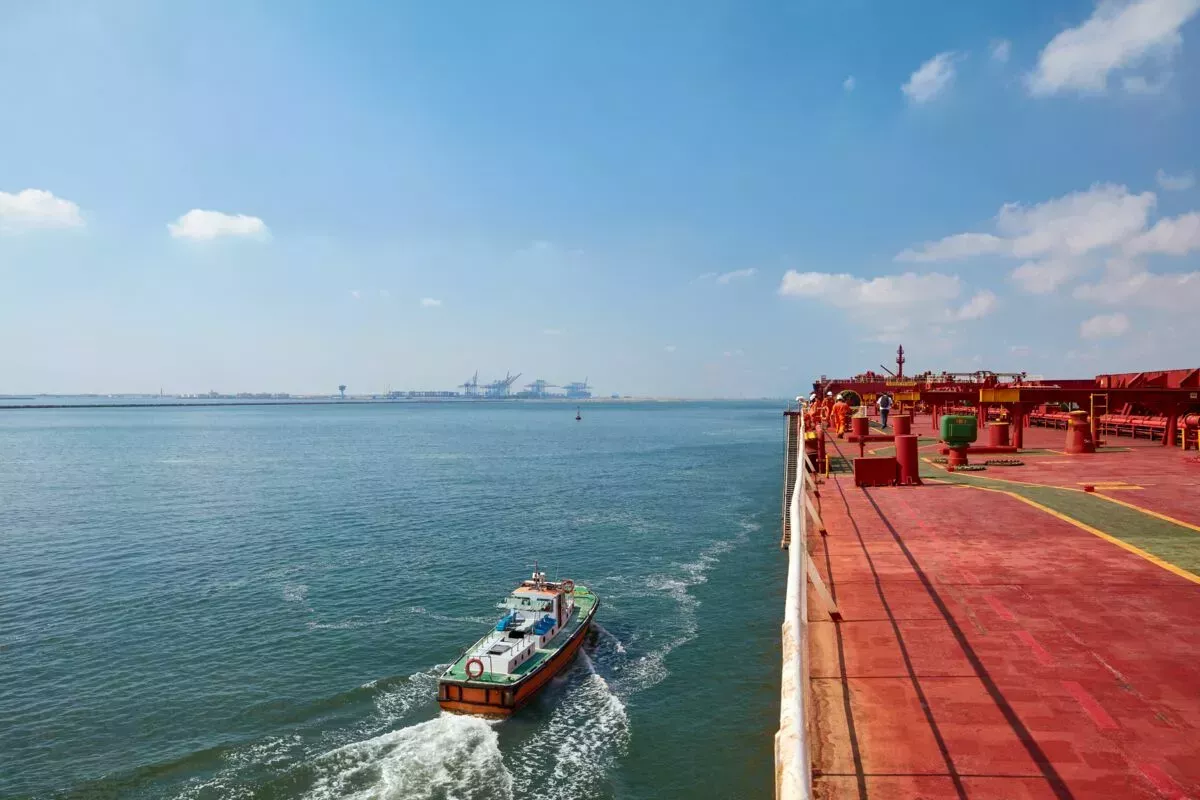
Decarbonisation and sustainable shipping
Decarbonisation was another major focus, with the industry recognising the pressing need to transition to sustainable energy sources, particularly alternative fuels.
As the shipping industry is responsible for about 2% of global emissions, the sector as a whole is under pressure to adopt more sustainable practices. A significant part of this transition involves exploring carbon-neutral fuel pathways and adopting new technologies. Discussions at Posidonia highlighted the necessity for a multi-layered approach involving regulatory frameworks, market incentives and technological innovation.
There were calls from shipowners for more effective incentives to support decarbonisation efforts, emphasising the need for clearer measures and a better understanding of their impacts on the industry as upcoming regulations are enforced.
The next generation of marine navigation technologies and solutions – including those underpinned by S-100 data standards – will play a significant role in reducing shipping’s carbon impact in the long term, and could also generate near-term carbon savings by unlocking significant operational efficiencies. You can read more about data’s role in supporting voyage optimisation and wider industry initiatives on our decarbonisation webpage.
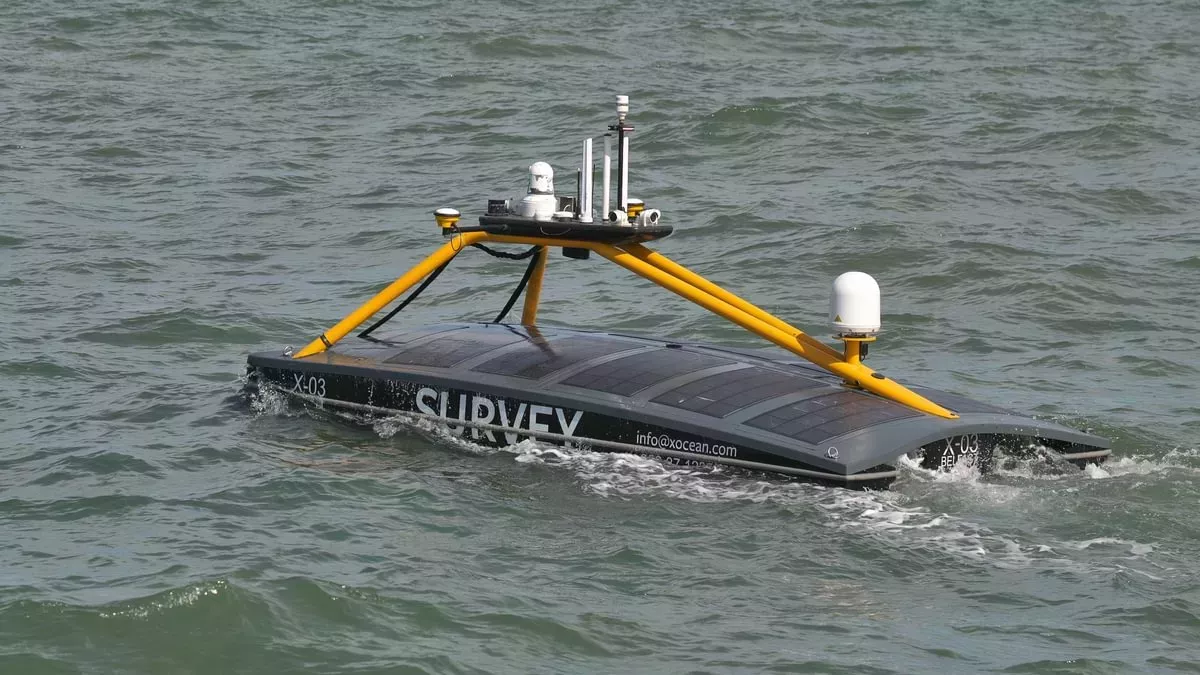
Technological innovation and autonomy
Technological advancements were also at the forefront of discussions in Athens, with a particular focus on how transformational technology – such as artificial intelligence (AI) and alternative fuels – can drive the maritime industry towards a more sustainable future.
Automation and the development of autonomous ships were explored extensively. Autonomous vessels, capable of navigating and operating with minimal human intervention, could revolutionise the industry by reducing labour costs and improving safety through the elimination of human error. However, this shift also brings a range of new challenges, including regulatory hurdles and the need for new safety protocols and workforce skills.
In light of these challenges, the need for official, machine-readable data will be critical for ensuring navigational safety. The UKHO is continuing to explore these requirements as we support the future transition from crewed to uncrewed vessels, including the next generation of S-100 data standards.
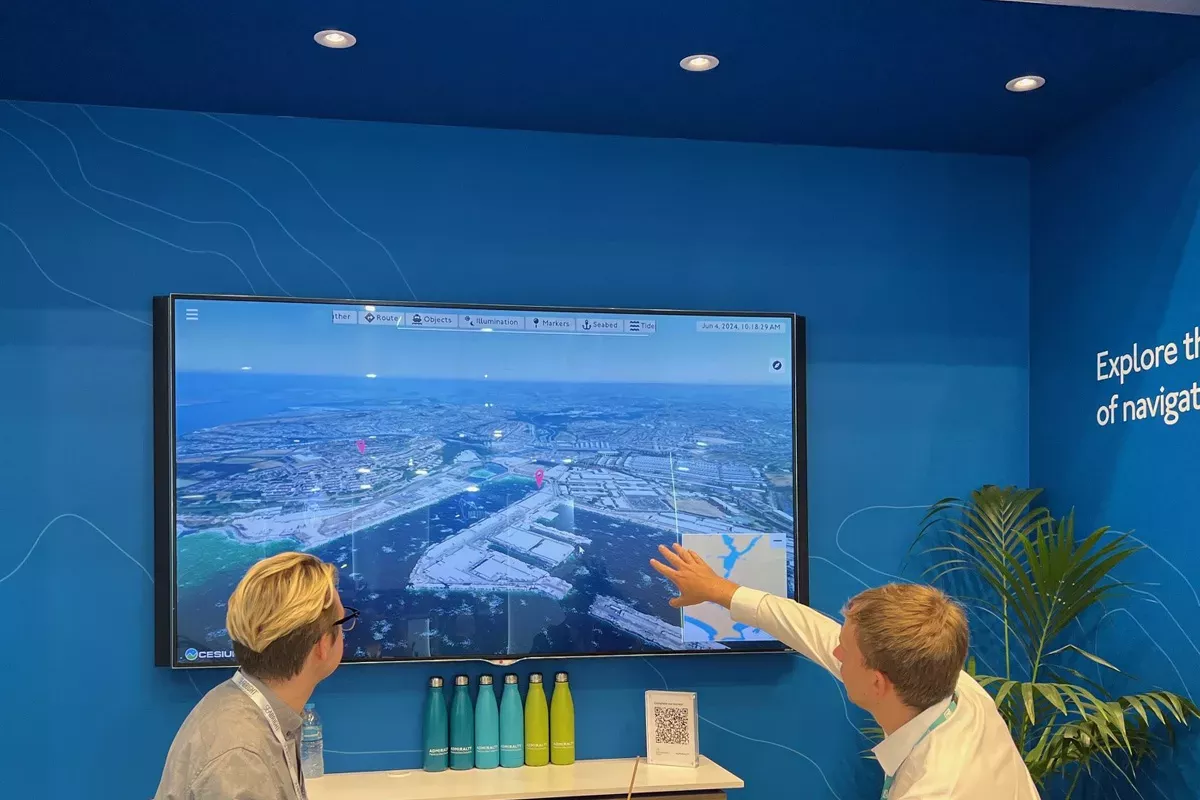
Exploring the potential of digital twin technology
The industry is also looking towards digital twin technology and its potential to enhance operational efficiency and sustainability. Digital twins can create virtual replicas of ships and the marine environment, allowing for real-time monitoring and simulation of various scenarios to optimise performance and support crews with familiarisation of their surroundings. This provides shipping companies, port operators and wider users with an accurate virtual environment in which to test new solutions.
The UKHO’s research and development team has been at the forefront of developing and testing a new ‘port familiarisation tool’ concept which we were able to showcase to visitors at Posidonia, enabling them to experience an immersive visualisation of a port entry and exit scenario. Using official ADMIRALTY data and dynamic environmental data feeds, the tool provides a 3D visualisation of the port environment in varying conditions. By providing a realistic depiction of port entry and exit customised to the user’s vessel, this technology enables mariners to familiarise themselves and rehearse navigational scenarios in varying conditions.
Looking ahead
Posidonia 2024 demonstrated that the international maritime industry is at a critical juncture, facing challenges that require a proactive and collaborative approach.
As the industry navigates these complexities, the insights and discussions from this year’s event will play a crucial role in shaping a more resilient and sustainable future for global shipping.
We are looking forward to continuing discussions at SMM Hamburg in September. Here, we hope to play our part in showcasing the next generation of navigational technologies and marine data solutions that will help shipping make this transformative shift.


